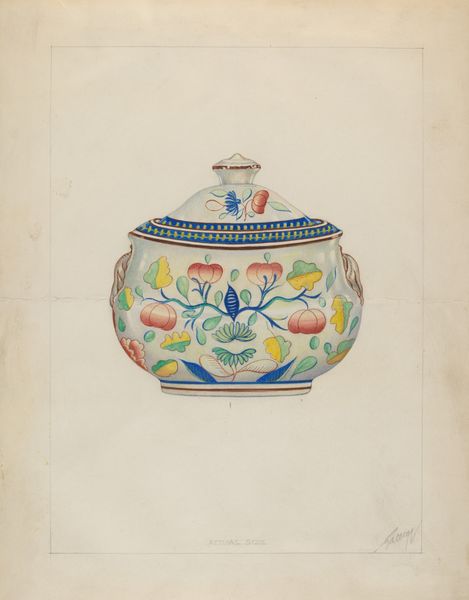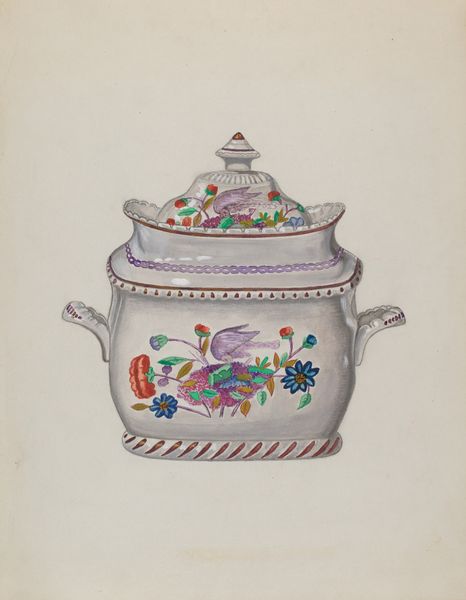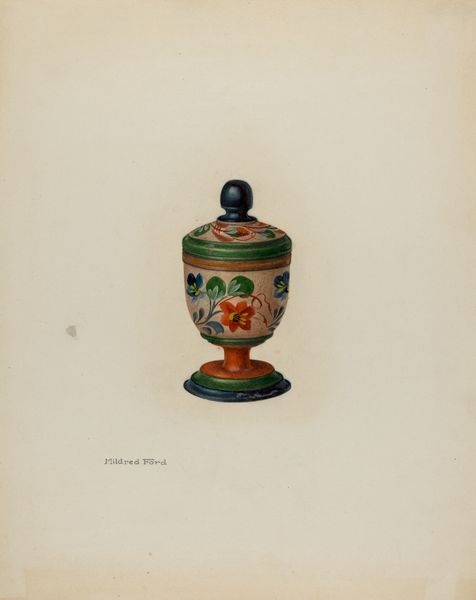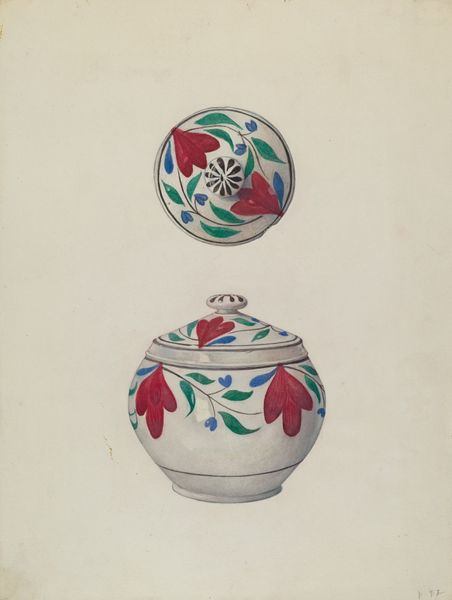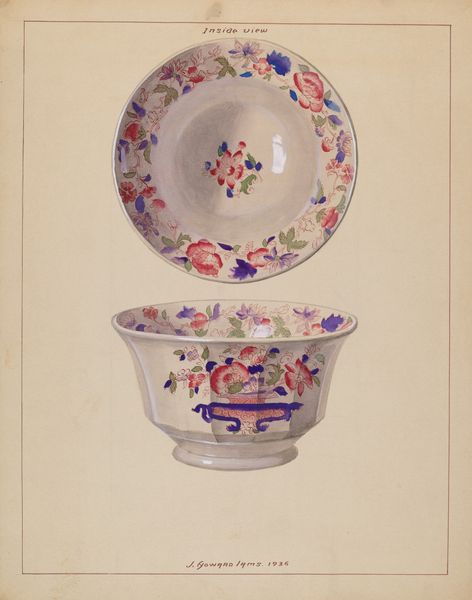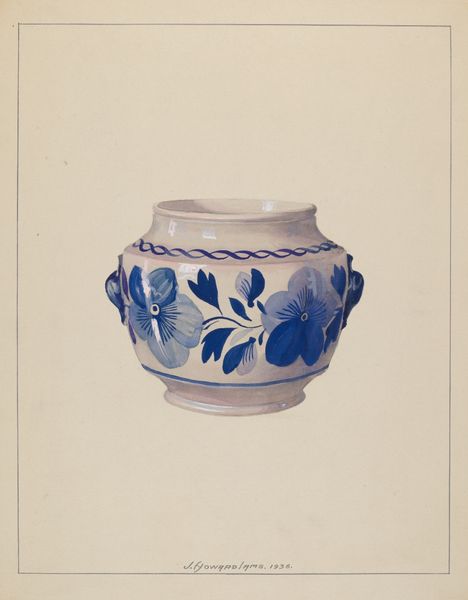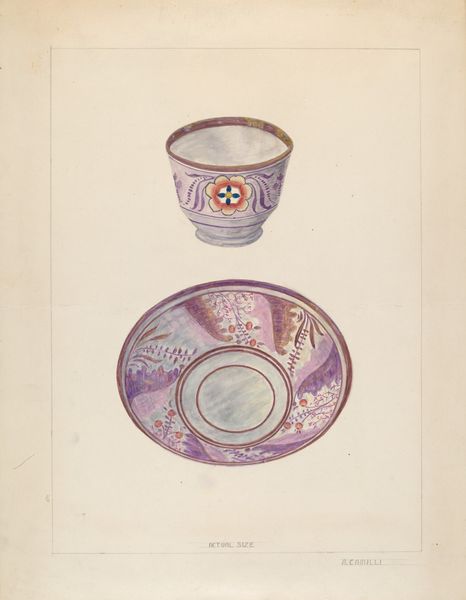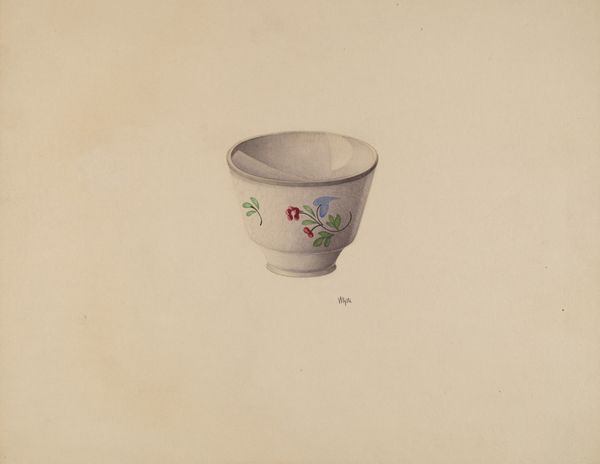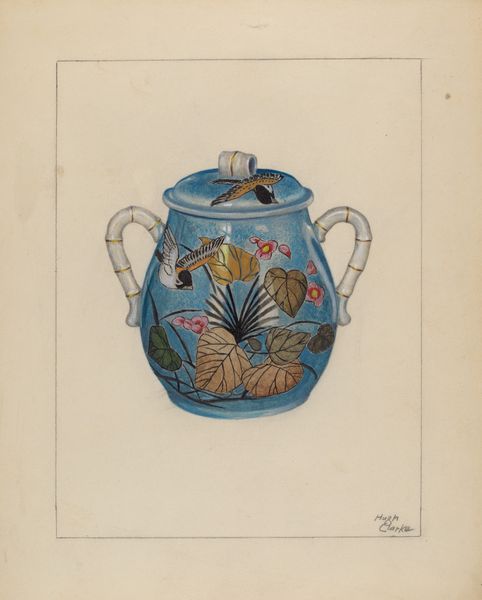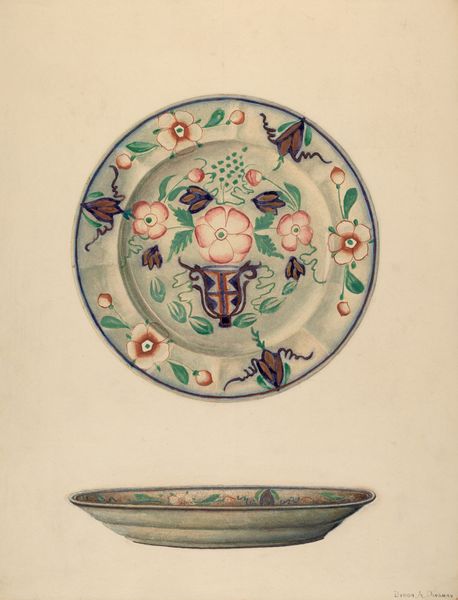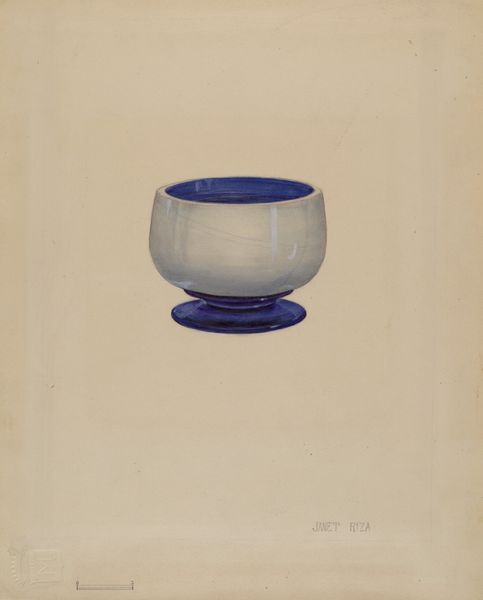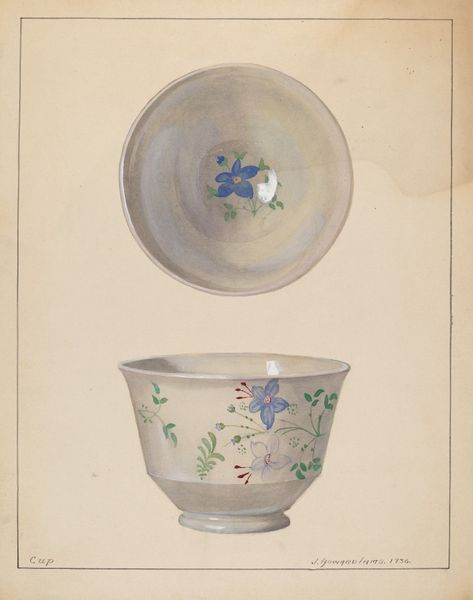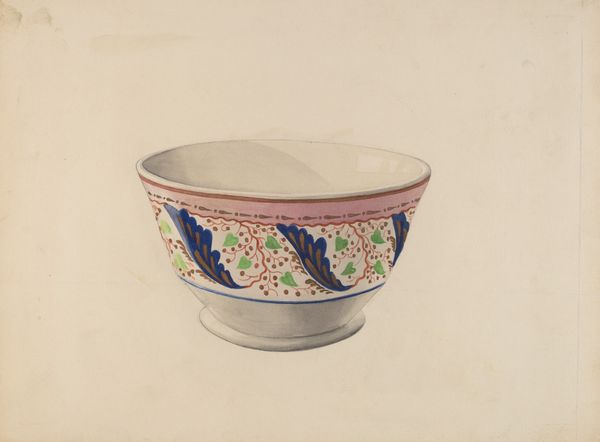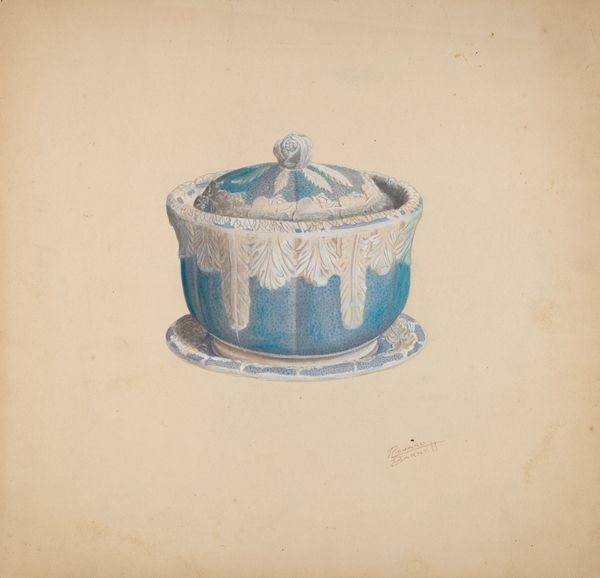
drawing, ceramic, paper, watercolor
#
drawing
#
ceramic
#
paper
#
watercolor
#
ceramic
#
watercolor
Dimensions: overall: 27.9 x 22.8 cm (11 x 9 in.) Original IAD Object: 4" High 4 1/2" Dia(max)
Copyright: National Gallery of Art: CC0 1.0
Editor: This is Edward White’s "Sugar Bowl," circa 1936, rendered in watercolor and drawing on paper. It’s charming, almost like a design sketch. The shadows feel modern, yet the floral design has an older feel. What catches your eye about it? Curator: I’m interested in this period, the mid-1930s. Notice how a seemingly simple ceramic sugar bowl, something so domestic, is elevated to an art object. It speaks volumes about the shifting perceptions of craft and design at the time. Does it strike you as merely representational, or something more? Editor: I suppose the focus on it alone, isolating the sugar bowl, does suggest it's meant to be more than just a picture of a sugar bowl. But what specifically was shifting? Curator: Mass production was well underway. There's a renewed appreciation, especially within artistic circles, for handcrafted items, for design itself as an art form. This could also reflect the broader context of the Depression era; elevating everyday objects could be a commentary on finding beauty in the mundane and accessible. Does this perhaps read as "high" or "low" art to you? Editor: It’s certainly not trying to be overtly grandiose or… high art. So you're suggesting it challenges existing notions of fine art by highlighting a common, functional object? Curator: Exactly. And by focusing on a mass producible form with decoration, White’s piece may subtly comment on the societal and class dynamics linked to accessibility, and production trends, making it part of a visual culture conversation of its time. Editor: That’s fascinating! I wouldn’t have considered that from just looking at a pretty sugar bowl. Thanks! Curator: It just highlights how something so seemingly simple is a window into understanding the public role and the political implications that art can portray!
Comments
No comments
Be the first to comment and join the conversation on the ultimate creative platform.
